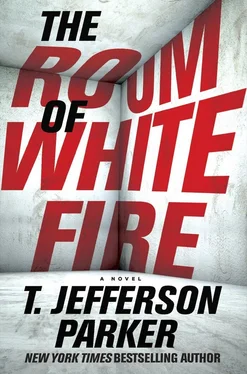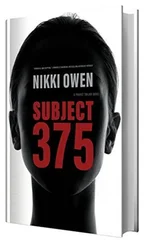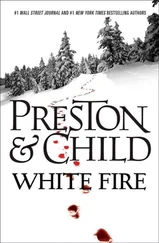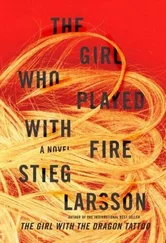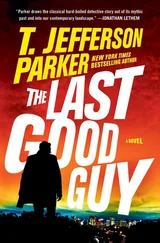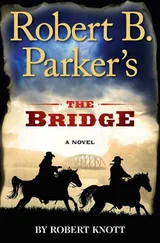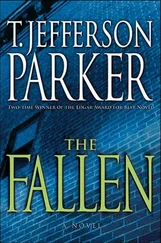The two SUVs cruised along, not quite fast, as if this thing would unfold exactly on their schedule. They stopped at the booth. The guard stepped to the lead vehicle and the driver’s-side window went down. A heated exchange, the guard jabbing the gun toward the house.
The driver pushed him away and the SUV lurched forward, followed closely by the second. On they went. The guard lumbered after them for a few yards, then gave up, an old dog outrun by rabbits. The two vehicles picked up their pace. It looked like half a minute to the house, another ten seconds to get in, and after that they’d probably clear the place like we did in Fallujah, one room at a time, all screaming and arm language, room to room, then to another and another. There are few things more intense and adrenaline-spiking in this world. Carrying life and death in your hands. Yours and those of others. Making all that follows back home feel dull and inconsequential.
3:06 PM
Men coming! Do not resist. DO NOT!
I figured if Clay was packing by now, or even Sequoia — through some understandable lapse in a nineteen-year-old’s judgment — there would soon be a brief firefight and two young lovers, or whatever they were, would be left lying side by side and forever dead.
Then: movement up by the house. I swung the binoculars onto the silver truck, which came accelerating down the drive, fast. The SUV drivers swung across the narrow road and parked. The four men dropped out and ran to cover in the trees, two on each side of the road. One with a handgun drawn. Clay charged toward the roadblock. I could see him behind the wheel, hands at two and ten, sunglasses on and his white hair bouncing. Beside him, Sequoia sat low, her head jammed back against the rest, hands braced on the dash.
On approach Clay downshifted, snaking right then left as he looked for a way through the blockade. From my higher view I saw the way. Clay did, too. He accelerated with a scream of engine, skidded around the first vehicle, shot the gap between, fishtailed around the second SUV, then gunned his truck down the tree line. The men held their fire.
The truck slid back onto the road and sped toward the guardhouse while the men scrambled into their vehicles. The guard had lowered the gate arm again and taken a position in the tree line. He knelt, heavy and off balance, trying to steady the buttless weapon with both hands. When the truck was a hundred feet in front of him, he fired into the air high above it. Clay didn’t slow down. The guard was clumsily jacking in another round when Clay splintered the gate and roared past the guardhouse. By the time the old man got himself up and turned and ready to fire again, Clay and Sequoia were out of range. The guard slammed the gun to the ground.
Moments later the silver pickup truck sped past me. My gut reaction was to give chase, but even if I managed to pull them over, then what? I could neither detain nor arrest. Could I talk enough sense to calm down a psychotic young man, off his meds, who has just been shot at? I didn’t think so. My first moral responsibility was still Sequoia’s safety.
The two SUVs skidded to stops at the guard gate and the men got out. The guard started yelling, then everybody was yelling at everybody. Their voices came to me as distant yelps. The BMW from the big house came barreling down, and it skidded to a stop, too, and a late-fifties-looking couple jumped out.
I watched the truck bouncing back toward the highway, Clay essing along in gentle left and right swerves, enjoying the getaway. Enjoy it, I thought. You are very lucky to be turning that wheel rather than bleeding on it. I had to shake my head as Clay and Sequoia disappeared around a curve.
The man I assumed to be Rex Hickman punched a finger into the old guard’s chest. The presumed Patricia Hickman grabbed her husband’s arm. The two SUVs hauled down the drive after the silver truck, and a moment later the BMW tore back uphill toward the house. No one saw me or paid Pete Bagnoli’s semi-hidden Taurus off in the trees any mind.
I waited a few minutes, then called Rex Hickman, told him who I was, that I was in the neighborhood, and would like to talk to him.
Hell no, he said, bad timing.
I told him I’d seen the shooting that had just transpired outside his home.
“Those men are mine,” he said. “And so is this property. Stay off it.”
“I’m on my way,” I told him. “Tell fatso not to shoot me when I come up the drive.”
I stood on the Hickman porch and listened to the voices, upstairs and distant. Rex hollering in torrents, Patricia silent, then shouting back. Couldn’t hear the words, but things were escalating by the sound of it. I rang the doorbell once more, waited, then called Rex again.
A few minutes later he swung open the front door. He had a Kick your ass expression on his face and a derringer dangling from one hand. Medium height, short brown hair, and pointed ears.
I overrode my instinct to go after him. “Cute gun, but I come in peace.”
“What in hell do you want?”
“To help your son. You don’t mind, do you?”
A few steps behind him materialized Patricia — tall, blond, workout clothes. She stared at me from behind his shoulder. “We don’t, do we, Rex?”
Without another word they led me through the foyer. He wore a purple polo shirt, shorts, and deck shoes. He looked as harmless as a man with a gun can look. The nylon soles of his shoes tapped on the hardwood floor as we walked past a great room with a towering ceiling, nineteenth-century portraiture, and a central flower arrangement the size of a Christmas tree.
Then into a study. Walls of bookshelves and a cavernous fireplace, picture windows facing west and south. At a bar beneath one of the windows Rex set the gun down and poured a glass of red wine for his wife. And what looked like a scotch and soda for himself. He took the wine to Patricia, who had encamped near one of the windows. I declined the drink they didn’t offer.
From here the Hickman grounds looked pastoral, as if nothing had happened. No gunfire. No car chase. No crazy son on a crazy mission. But here in the study, in close proximity to Rex and Patricia, I felt as if some flammable gas had pooled and a spark could set it off.
“Look, Hickmans,” I said. “You can stay on mute as long as you want, but I’m trying to find your son and bring him to some kind of safety.”
“My men will do that,” said Rex. “They’ll return him to Arcadia, where he’s safe and well taken care of.”
“I wonder why he ran away, then.”
“Not for you to know,” he said.
“Do you?”
He pondered this. “This is what I know. I know the quality of care he gets. His quality of life. And I know how much money I spend to provide it for him.”
“Honey.”
“Try twenty-five thousand dollars a month.”
I did try it, and it came to three hundred thousand dollars a year. At that rate, Arcadia’s sixty patients brought a breezy eighteen million dollars annually to “Dr.” Briggs Spencer, who also owned two other facilities. I remembered that he’d called his hospital profits “pocket change.” I smiled at the stubbornly cheap natures of so many very rich men.
“What is it that you find funny?”
“Let’s be frank, Mr. Hickman. Twenty-five grand a month doesn’t even budge your bottom line.”
“It certainly doesn’t help it. But really, how far out of your way will you go to miss a point? The point is, Clay is a very troubled young man, and he has been that way for a long time, and Pat and I have done everything in our power to get what is best for him. And now Clay has had yet another break. His medications have become toxic or obsolete. Again. His mind is firing wrong. Again. Whatever was keeping him stable — relatively stable — has somehow gone wrong.”
Читать дальше
